CCG, RSIS & CSIS Roundtable on the future of US-China Relations
April 29 , 2021
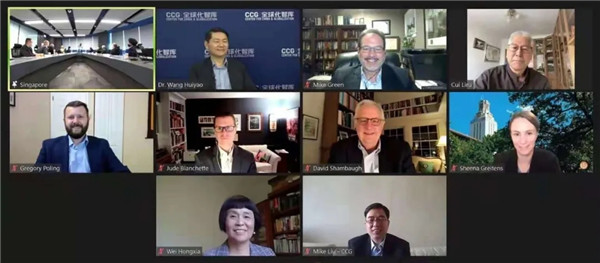
On 29 April, the Center for China and Globalization (CCG), the S. Rajaratnam School of International Studies (RSIS) at the Nanyang Technological University and the Centre for Strategic and International Studies (CSIS) co-hosted a trilateral exchange titled “The Next Bound in US-China Relations”, seeking to explore what is in store for the next bound in US-China relations.
Welcome remarks were delivered by Ambassador Ong Keng Yong, RSIS executive deputy chairman; Teo Eng Dih, deputy secretary (Policy) of Ministry of Defence of Singapore; John J. Hamre, president and CEO of CSIS, as well as Wang Huiyao, founder and president of CCG and dean of the Institute of Development Studies at the Southwestern University of Finance and Economics. This event was moderated by Joseph Liow, dean of the College of Humanities, Arts, and Social Sciences at Nanyang Technological University.
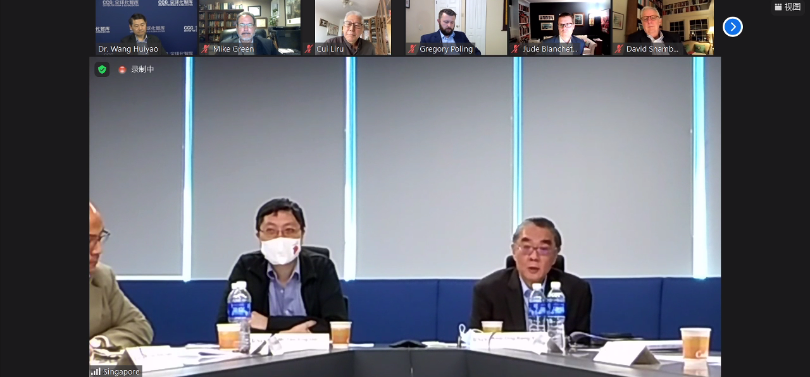
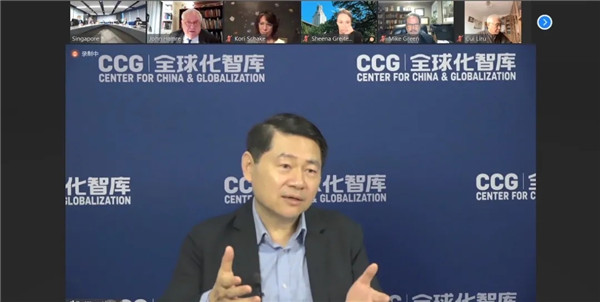
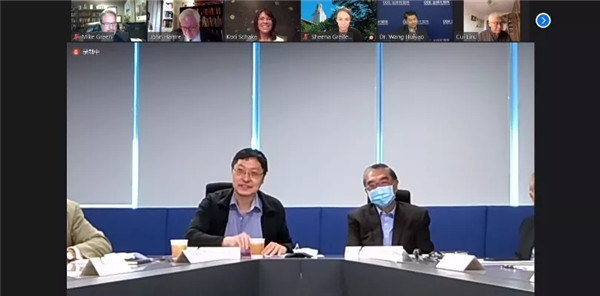
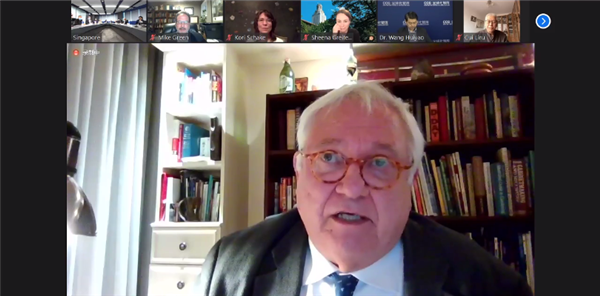
In the first panel, Wang Gungwu, University Professor of the National University of Singapore; Ambassador He Yafei, co-chair of CCG and former vice minister of Foreign Affairs of China; and Michael J. Green, senior vice president for Asia and Japan Chair of CSIS, discussed several topics such US-China relations from a historical perspective and prospects for competition and cooperation between China and the US.
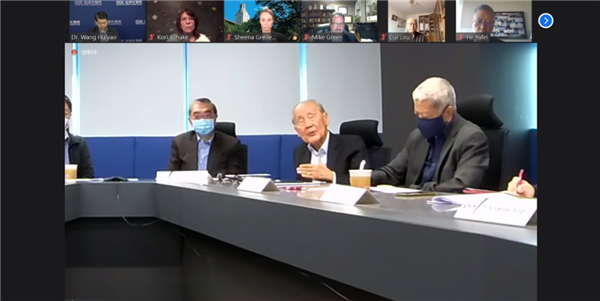
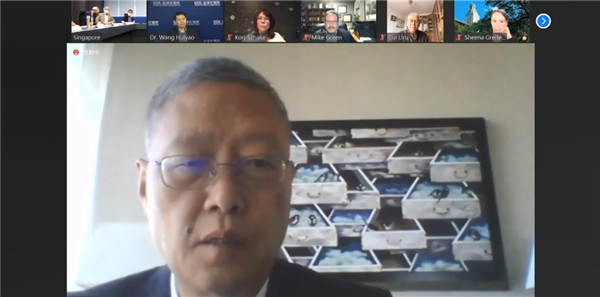
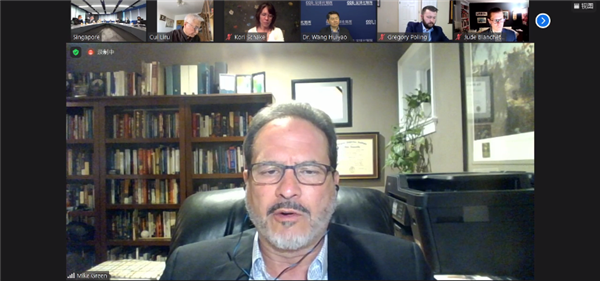
In the second panel, Cui Liru, senior advisor and former president of the China Institutes of Contemporary International Relations (CICIR), and Kori Schake, director of the Foreign and Defense Policy Studies at the American Enterprise Institute, shared ideas on issues including strategic competition between China and the US, the international order under competition between two powers, and the factors impacting US policy toward China.
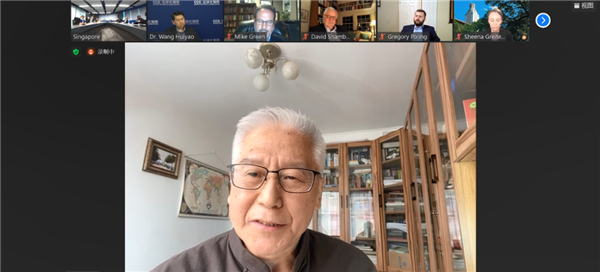
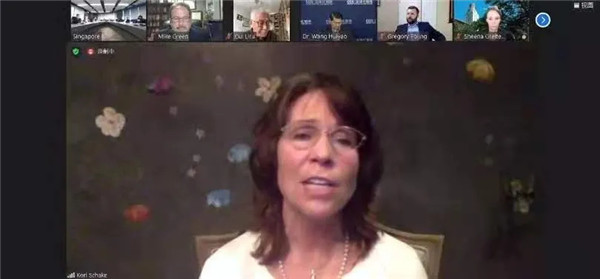
Other participants included David Blair, vice president and senior economist of CCG; He Weiwen, senior fellow of CCG and former commercial counselor of the Chinese Embassy in New York and San Francisco; David Shambaugh, Gaston Sigur professor of Asian Studies of the Political Science & International Affairs, director of the ESIA China Policy Program at the George Washington University; Wei Hongxia, non-resident senior fellow of CCG and deputy director of the Institute of American studies at the Chinese Academy of Social Sciences (CASS); Choi Shing Kwok, director of ISEAS-Yusof Ishak Institute; Bert Hofman, director of the East Asian Institute (EAI) and professor of Practice, Lee Kuan Yew School of Public Policy (LKYSPP); Khong Yuen Foong, vice dean (Research & Policy) of the Lee Kuan Yew School of Public Policy (LKYSPP); Jude Blanchette, Freeman Chair in China Studies of CSIS; and Sheena Chestnut Greitens, associate professor of Lyndon B. Johnson School of Public Affairs at the University of Texas at Austin.
Participants also included Mike Liu, vice president of CCG; Danny Quah, dean of the Lee Kuan Yew School of Public Policy (LKYSPP); Scott Kennedy, senior adviser and Trustee Chair in Chinese Business and Economics of CSIS and Gregory Poling, senior fellow for Southeast Asia and director of the Asia Maritime Transparency Initiative of CSIS.
They discussed with panelists on topics including challenges and opportunities for US-China relations, the role of ASEAN in decreasing tensions between China and the US; the cultural, ideological and systematic differences between China and the US; and the role of China and the US in the WTO reform.






